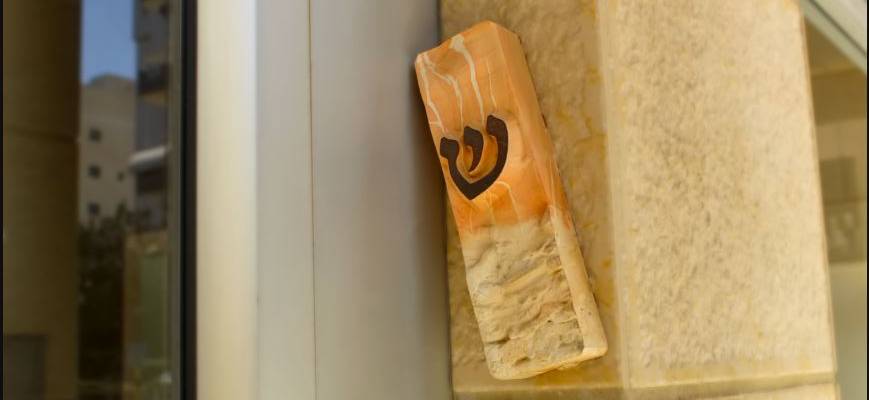Israel’s Chief Rabbi David Lau stressed that “there is no commandment and obligation to kiss a mezuzah,” referring to small containers mounted on doors that contain scrolls, which traditional Jews touch and then kiss before entering a room.
By Benjamin Kerstein, The Algemeiner
Israel’s Ashkenazi chief rabbi ruled on Wednesday that Jews should not touch or kiss mezuzot, so as to avoid infection by the coronavirus, and the president of the Conference of European Rabbis said the same.
Despite efforts to contain the spread of the virus in Israel, thousands in the country have been quarantined, including the entire student body of a high school and a large group of soccer fans.
Chief Rabbi David Lau explained his stance on contact with mezuzot — small containers mounted on doors that contain scrolls, which traditional Jews touch and then kiss before they enter a room — in an official letter.
“These days, we are witnessing the spread of a serious illness,” Lau noted. “There is no doubt that mezuzot should not be kissed and it is forbidden to touch them at all.”
“It is enough for a person to think about the things written in the mezuzah upon entering and leaving, and this will accompany him on his way,” the rabbi said.
Lau explained that “there is no commandment and obligation to kiss a mezuzah,” because doing so is a Jewish tradition rather than a halachic (Jewish legal) law.
“There is a custom based on ancient sources that [Jews] would touch the mezuzah, and only later began to kiss it as well,” he said. “When they became aware of the fact that there was a danger there, as early as the nineteenth century one of the great rabbis published a ruling that one must be careful about this.”
Chief Rabbi of Moscow Pinchas Goldschmidt — the president of the Conference of European Rabbis — went further than Lau, saying in his own official letter, “It is advisable not to kiss other people, as well as communal siddurim (prayer books), communal taleisim (prayer shawls), mezuzot, and Sefer Torahs.”
He also said that people who are ill, whether it is clearly due to the coronavirus or not, should stay home “even if they have to say Kaddish [prayer for the dead].”
Goldschmidt further recommended that hand sanitizers be placed at synagogues, and “we cannot underestimate the importance of washing hands on all occasions prescribed by Halacha.”
“May G-d contain this epidemic, heal the sick, and guide the scientist to find a vaccine,” he added.
Also on Wednesday, Prime Minister Benjamin Netanyahu urged Israelis to avoid normal handshakes and demonstrated the Indian “Namaste” greeting as an alternative.
Do You Love Israel? Make a Donation - Show Your Support!
Donate to vital charities that help protect Israeli citizens and inspire millions around the world to support Israel too!
Now more than ever, Israel needs your help to fight and win the war -- including on the battlefield of public opinion.
Antisemitism, anti-Israel bias and boycotts are out of control. Israel's enemies are inciting terror and violence against innocent Israelis and Jews around the world. Help us fight back!




